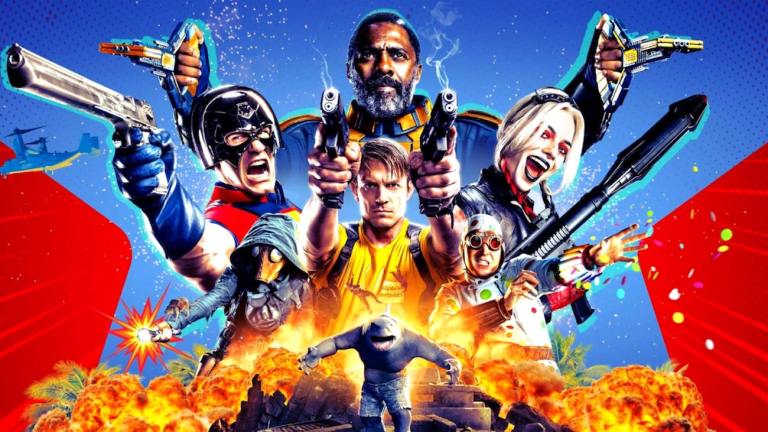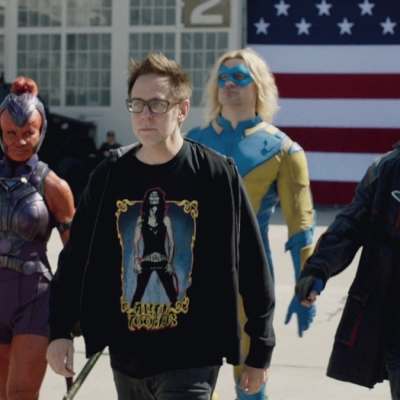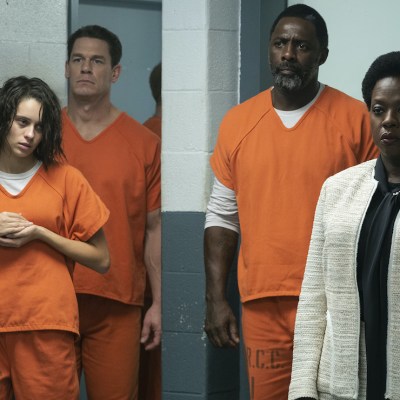Does The Suicide Squad Box Office Hurt Future of R-Rated Superhero Movies?
The Suicide Squad grossed less than its predecessor or Birds of Prey over the weekend, but what does that mean for the “franchise” and R-rated superhero movies in general?

There are many ways to look at the box office returns for The Suicide Squad from this past weekend. Perhaps the most rose-tinted one is to note that it earned more than any other R-rated film since the COVID-19 pandemic first shut down movie theaters in 2020. But then, there’ve been few R-rated wide releases since then, and those that did open weren’t starring Margot Robbie in her most popular role, nor were they perceived as a semi-sequel to a movie which opened to $133 million in 2016. They didn’t even have to be compared to the anemic debut of Birds of Prey, which also underperformed when it opened to $33 million in February 2020.
There is no kind way of saying that The Suicide Squad fell way below expectations, pre or post-pandemic, when it opened at an estimated $26.5 million this weekend. This comes in lower than even the $30 million floor the industry placed on projections for the James Gunn movie. These are not the kind of numbers that get sequels made. In fact, when accompanied with a $185 million production budget, it looks more like a number that will scare studios away from anything remotely similar.
Which was of course the immediate takeaway for many prognosticators: The Suicide Squad, and to a lesser extent Birds of Prey, prove the folly of R-rated superhero movies, and that something as wild and demented as Gunn’s filmmaking voice (or Harley Quinn’s persona) should be filtered only through the prism of PG-13 studio mandates, and all the edge-smoothing committees that implies.
Unfortunately, this runs the risk of being the same type of knee-jerk conventional wisdom that prevents studios from gambling on outside-the-box projects like the mere concept of Suicide Squad, which was profitable, or R-rated superhero movie success stories like Deadpool and Logan. In fact, it begs the question of whether the R-rating really is a major factor in The Suicide Squad’s box office failure?
The HBO Max Factor
There are several significant factors that likely contributed to The Suicide Squad’s underperformance. The first major one is the elephant in the room which media companies would prefer go ignored: day-and-date release strategies, which cripple the box office potential of films also immediately available for streaming (and thereby piracy).
It’s barely been a week since Scarlett Johansson filed suit against Disney over an alleged contract breach by releasing Black Widow on Disney+ the same day it opened in theaters. While that PG-13 superhero movie had the biggest opening since the pandemic began with more than $80 million, Disney earned almost as much behind Disney+’s Premier Access paywall—revenue that Johansson alleged she has not seen a cut of, and which she’s claimed the company ignored overtures to discuss.
That movie had a relatively luxuriant price tag of $30 on its streaming release, and yet Black Widow’s staggering 68 percent drop in its second weekend (a relative anomaly among Marvel movies) shows the limits that streaming/piracy puts on a theatrical releases. As does the fact that despite opening domestically smaller, Universal’s F9 is on track to earn nearly double what the Disney superhero movie did. And F9 is only available in theaters.
Also unlike Black Widow, The Suicide Squad opened on a streaming service with no paywall via HBO Max. While the day-and-date model for HBO Max has had some silver linings, most notably Godzilla vs. Kong earning $31.6 million in March, back when theaters and distributors were terrified audiences would never return to cinemas, those numbers always come with an asterisk. In truth, there seems to be a relative ceiling on the HBO Max hybrid model, which might have undercut In the Heights. Despite lots of industry buzz and glowing reviews, that musical flopped when it opened at $11.5 million in June. In the same month, The Conjuring: The Devil Made Me Do It somewhat underperformed with a $24 million opening, despite the previous direct film in the franchise earning $40 million during its U.S. debut.
Honestly, it’s worth wondering if there’s a cap that HBO Max streaming releases are creating for these Warner Bros. movies. So far no other hybrid release has topped GVK, which opened at a time that many theaters were still closed, and the only one to come close is Space Jam: A New Legacy. That animated sequel premiered at $31.1 million. Perhaps that’s why HBO Max chief Andy Forssell sounded like he was whistling past the graveyard when he announced that The Suicide Squad is HBO Max’s second most viewed WB release, just behind Mortal Kombat.
“As the country faces new challenges due to the COVID variant, we’re happy to continue to offer fans the option of viewing movies in their homes,” the executive said. “Many chose to do just that as Suicide Squad emerged as the second most viewed film over an opening weekend on HBO Max since we began day-and-date releases with theaters.”
The DCEU Problem
There is also the question of whether the legacy of the franchise itself is wholly tainted by the 2016 movie. While that earlier movie opened at a staggering $133 million, it was during a period where superhero movies seemed like they could only grow in popularity. Just as the word of mouth and the overall quality of the same year’s Batman v Superman: Dawn of Justice came back to haunt its sequel, Justice League, the legacy of Suicide Squad ’16 has lingered on the brand despite rave reviews.
One might even wonder if those memories, coupled with emerging anxiety about the COVID delta variant, led millions of people with an HBO Max subscription to pick watching the new flick at home in spite of its rave reviews? HBO Max apparently had a good weekend, if few others did in relation to this rollout. Meanwhile sequels to movies that audiences actually liked the first time out, such as A Quiet Place Part II, can still clear $58 million over Memorial Day weekend.
It is ultimately impossible to really know how much each of these factors contributed to The Suicide Squad’s failure, but I would argue it seems shortsighted to suggest that because Birds of Prey and Gunn’s movie were rated R, then superhero movies demonstrably don’t work at that level. Deadpool opened at $132 million with a much smaller marketing push than The Suicide Squad, and with a character audiences hadn’t proven they were already interested in. In fact, some of the problems the first Suicide Squad ran into included that movie being reshot and reedited to better resemble recent hits like Deadpool.
It was the strangeness of the basic concept for this franchise, as well as elements that surprised audiences back then like Robbie’s Harley Quinn, which became that year’s most popular Halloween costume, that won audiences over. Did the PG-13 rating help at the box office? Most likely, but the movie was ironically not marketed like a PG-13 superhero flick.
At the very least, we hope these numbers don’t mark the last time we see these characters. Encouragingly, Gunn is already making a Peacemaker HBO Max series with Cena. And with any luck, if WB decides Harley Quinn’s fanbase is too limited for a major blockbuster (even though the initial enthusiasm for the 2016 movie begs to differ), maybe Robbie would agree to an HBO Max series herself? It certainly would be easier to have more creative control if she didn’t have to worry about how certain foreign markets would react.
This was a bad weekend for The Suicide Squad franchise. It shouldn’t become a worse one for the genre where the wrong lessons are learned.


